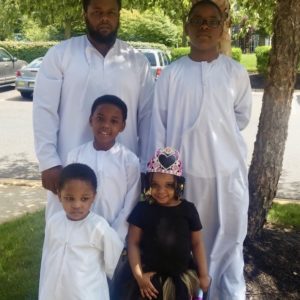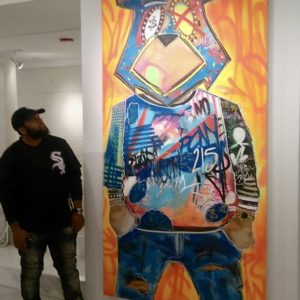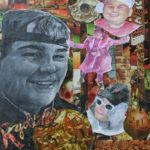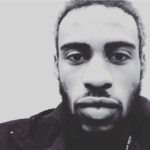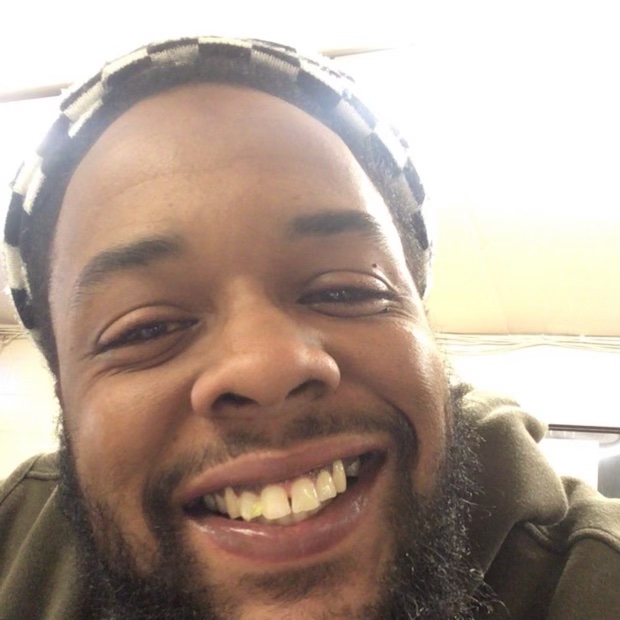
In the summer of 1997, Khalil Hicks and Saleemah Oglesby set eyes on each other for the first time outside of Power 99 FM’s annual Powerhouse concert.
They had mutual friends, and the group had purchased tickets for the concert. But when they tried to enter the concert with the tickets, they found out they were counterfeit.
Khalil, who was 18, and Saleemah, who was 19, didn’t get a chance to talk that day, but he was interested. A few days later, a mutual friend stopped by her house and said, “My friend likes you.”
Saleemah didn’t return his feelings — yet.
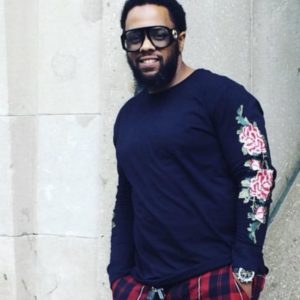
A short time later, their friend group was gathered in a parking garage dancing to reggae when Saleemah began to see something special in Khalil’s smile and bubbly personality. They bonded over music, and Khalil could really dance, which impressed her. He also made her laugh.
From then on, they were friends, and they became close. They got to know each other’s families and thought of each other as brother and sister.
In 2002, Khalil went to prison, and when he got out, something clicked with Saleemah, and they became a couple. She became pregnant with their first child together, a son they named Khabir. Khalil got locked up again, and they got married on Jan. 2, 2003 at the prison. He remained there for the first few years of their marriage.
The couple eventually had three more children, another son and a set of twins. Khalil was a hands-on dad while also running a small clothing store called The Re-Up Shop inside Jerry’s Corner, an indoor flea market in Southwest Philadelphia. Khalil was also in the process of starting a tow truck business.
He would never have the chance to see his children grow up or make his new business a success. Khalil was fatally shot and robbed on April 16, 2019 inside a U-Haul storage garage in the 6200 block of Chelwynde Avenue in Southwest Philly. His murder remains unsolved.
“Khalil was a really good person, the type of person who you knew is always going to be there if you needed him, no ifs, ands or buts about it,” Saleemah said. “He was a security blanket.”
Khalil was born July 31, 1979 in Philadelphia to his mother Andrea Lynn Hicks. He attended Furness High School in South Philly followed by YouthBuild Philadelphia Charter School, where he gained skills in construction.
Khalil became a father for the first time when he was 18. His daughter, Layla Lawson, describes her father as ambitious and artistic with a hustler mentality, and she takes after him in that way. Khalil invested in her while she attended Temple University by helping out with the expenses, and he would have been so proud to see her graduate in 2020.
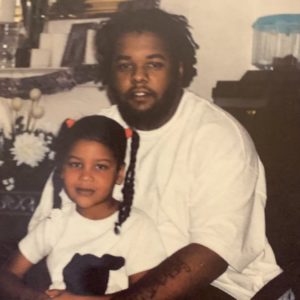
Khalil enjoyed drawing and writing urban fiction. While he was in prison he wrote four books by hand, including an autobiography of his life.
“My dad was high speed and always had multiple projects going on, and I get my ambition and entrepreneurship and creativity from him,” Layla said.
He channeled that creativity into a clothing line called Paper Hanger, which he sold at his shop. He loved being an entrepreneur, Saleemah said, and he was a good salesman. Shortly before his death, he talked about wanting to change the content of the store to add more children’s fashion.
Khalil and Layla enjoyed making shirts together at his shop with his screen printing machine. He taught her how to use it, and then after she took a screen printing course, she was able to teach him some new techniques.
“He always told me I was the better version of himself,” Layla said. “Growing up, he was caught up in his environment and didn’t go to college or even get out of Philadelphia. We had different experiences, and he was living through me.”
Khabir Hicks learned about entrepreneurship from his dad. He followed in Khalil’s footsteps and started a clothing line.
Khalil was also focused on launching his tow truck business, which he planned to name Road Runner. He had a friend who ran a towing company and he worked for him for a while before purchasing his own vintage tow truck. He wanted to get a road runner painted on the side.
However, Khalil’s children were his main concern. He was protective of them.

“Everything was about his children,” Saleemah said. “He’s the dad that you would see in the morning dropping the kids off at school and picking them up, taking them to doctor’s appointments, going to parent-teacher conferences. He was that type of father to our children.”
Layla remembers her dad taking her on a scary yet fun ride on a motorcycle when she was about 10, and he always had late ‘90s and early 2000s hip hop playing in his car. To this day, music from that era reminds her of him.
Khalil wanted his children to learn from his struggles because he only wanted the best for them.
“He wanted to make sure his kids didn’t make the same mistakes he did,” Khabir said.
Just as Khalil was supportive of Layla’s education, he was just as encouraging when Saleemah decided to go to nursing school. After he passed, she pressed forward despite her loss and graduated.
When she walked into her graduation party, she was faced with a life-size cutout of Khalil to symbolize his presence.
“He would have been so happy,” Saleemah said. “He would have been the loudest person at the graduation. He would’ve said, ‘Babe, you did it. You’re a nurse. You really did it.’”
Since Khalil’s death, his mother has also passed. She was a vocal advocate for her son’s case, visiting the police often and urging them to do everything possible to solve it.
Khabir wants his father to be remembered “as a loving, caring, giving person, because that’s what he was.”
Khalil, who was Muslim, is laid to rest at Friends Southwest Burial Ground.
A reward of up to $20,000 if available to anyone that comes forward with information that leads to the arrest and conviction of the person responsible for Khalil’s murder. Anonymous calls can be submitted by calling the Citizens Crime Commission at 215-546-TIPS.
Resources are available for people and communities that have endured gun violence in Philadelphia. Click here for more information.
